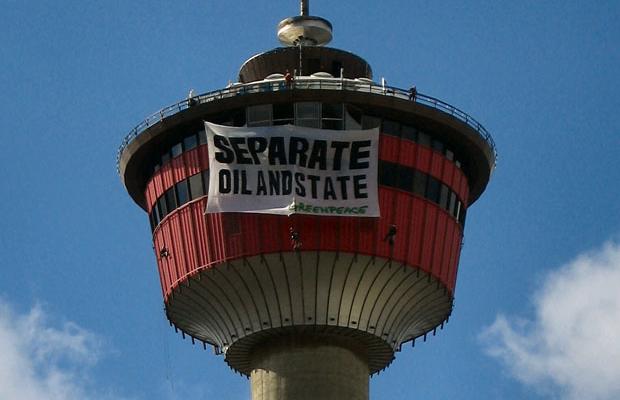Mileposts on Environmentalism’s Road to Hell
Environment, Nanny Statism Will there come a time when firefighters have to consider saving an endangered species over someone’s home? One wonders:
Will there come a time when firefighters have to consider saving an endangered species over someone’s home? One wonders:
Lost in the images of aircraft dropping giant red plumes of retardant on a Colorado wildfire this week is the fact that the practice may not be legal under federal environmental laws.
A federal judge in July declared that the government’s current plan for dropping retardant on fires is illegal, and he gave the U.S. Forest Service until the end of next year to find a more environmentally friendly alternative.
The issue appears to hinge more on how the retardant is used than on the retardant itself, but when human lives and property are on the line, should it matter at all if some fish and plants are put at risk? Plants grow back and waterways recover, even from the worst disasters. People’s lives and homes aren’t so easy to reassemble.
Then we have the Federal government’s futile attempts to spark the “green economy”, which has succeeded primarily in shipping jobs overseas (h/t Jeffrey Tucker):
The last major GE factory making ordinary incandescent light bulbs in the United States is closing this month, marking a small, sad exit for a product and company that can trace their roots to Thomas Alva Edison’s innovations in the 1870s….
What made the plant here vulnerable is, in part, a 2007 energy conservation measure passed by Congress that set standards essentially banning ordinary incandescents by 2014. The law will force millions of American households to switch to more efficient bulbs.
The resulting savings in energy and greenhouse-gas emissions are expected to be immense. But the move also had unintended consequences.
Rather than setting off a boom in the U.S. manufacture of replacement lights, the leading replacement lights are compact fluorescents, or CFLs, which are made almost entirely overseas, mostly in China.
Bastiat weeps! Of course the unintended consequences are never considered by policy makers when The Future of Civilization is at stake (or at least when cheap political points can be scored). A few hundred people’s livelihoods, consumers’ freedom of choice: small sacrifices on the environmentalists’ altar. Maybe Mother Earth will thank us in a few million years.
Mileposts on Environmentalism’s Road to Hell Read Post »

